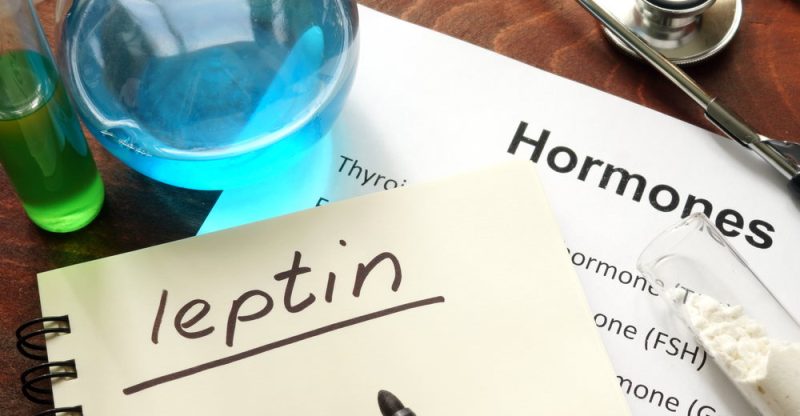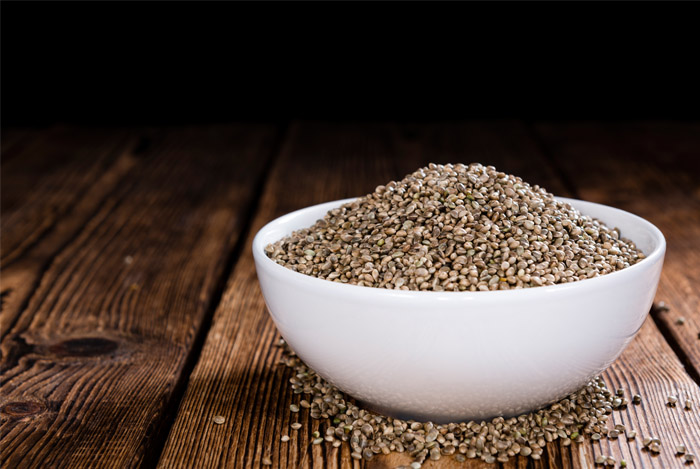Leptin: The Fat Burning Hormone
Leptin is a fat-burning hormone that helps to control your weight. It is located in the brain, and it’s released when you’re fasting or eating less than what your body needs. Leptin turns on this fat and makes you burn more calories by increasing the amount of brown fat cells.
The relationship between obesity and the hormone leptin is now a hot issue in obesity research. Some data shows that obese people may not react to increased leptin levels in the same manner that non-obese people do, which is why obesity is now being linked to potential “leptin resistance.” After years of study into hormones that control body weight and calorie intake, scientists identified leptin in 1994. Researchers had hoped that the finding would lead to the development of potent weight reduction supplements, but this has never occurred.
What is the role of leptin in the body, and where does it originate from? Leptin interacts with brain locations that regulate appetite and eating habits. Leptin is known as the “starvation hormone” because its levels drop when people reduce their calorie intake too much, exercise more, and shed body fat. All of these things have a role in what’s known as “starvation mode.” (Ghrelin, on the other hand, is a “hunger hormone” that makes you want to eat more.)
Adipose (fat) cells create a certain amount of leptin at your optimum “set point weight,” which maintains the internal energy balance required for appropriate cellular function and weight control. In most healthy people, variations in body weight cause changes in leptin, leading hunger to increase when body fat decreases or decrease when body fat increases — yet this energy-balancing mechanism seems to fail in certain sensitive individuals.
There’s still a lot to understand about leptin resistance (or reduced sensitivity to leptin’s signals) and how to avoid or cure it. However, many experts feel that eating a highly processed, highly “palatable” diet, particularly when combined with a stressful and primarily sedentary lifestyle, is the ideal recipe for developing leptin resistance.
Even if a person is genetically predisposed to weight gain or obesity, they can still do a lot to help avoid it, such as eating a nutrient-dense diet, exercising regularly, and managing stress.
What Is the Leptin Hormone?
“A peptide hormone generated by fat cells that play a function in body weight management by acting on the hypothalamus to suppress hunger and burn fat stored in adipose tissue,” according to the definition of leptin.
Leptin is known as the “starvation hormone” (or “satiety hormone”) because it tells your brain if you’ve eaten enough and have enough energy (calorie intake) or whether you need to increase your energy intake. Leptin and ghrelin levels may be influenced by a variety of variables, including:
- Consumption of calories
- Timing of meals
- Schedule of sleep and wakefulness, as well as sleep length (both linked to your circadian rhythm)
- exposure to light
- Exercise
- Stress
Body fat is the primary regulator of leptin production (or adipose tissue). Levels vary based on your present weight, particularly your body fat percentage. Leptin is mostly generated by adipocytes (fat cells), which explains why levels of leptin rise as people gain weight and fall when they lose it. Leptin is also involved in controlling the reproductive system, thyroid gland, adrenal glands, and the synthesis of growth hormone.
Leptin accomplishes its goal by attaching to and activating LEPR-B receptors in the brain. Therefore, when your leptin levels rise, your hunger should diminish, and you should begin to increase your energy expenditure (the number of “calories expended”), both consciously and subconsciously. Most individuals benefit from this feedback system since it helps them avoid gaining too much weight.
What distinguishes leptin from ghrelin?
Leptin and ghrelin are two hormones that aid in regulating metabolism, hunger, and body weight. While leptin is known as the “satiety hormone” because it helps manage hunger, ghrelin is known as the “hunger hormone” because it makes you want to eat more.
When ghrelin and leptin levels are altered, your ability to eat when you’re actually hungry and quit when you’re full might be seriously harmed, leading to weight gain and other complications. So diet and lifestyle adjustments that help regulate leptin are also useful for managing ghrelin, even though these two hormones have opposing effects and operate together in a checks-and-balances kind of approach.
Obesity and Leptin Resistance
What does research reveal about the link between obesity and leptin? Leptin resistance is defined as “the inability of endogenous or exogenous leptin to promote predicted beneficial metabolic consequences in situations of over-nutrition or obesity,” according to the National Institutes of Health. To put it another way, leptin resistance is when your “brain is famished yet your body is fat.”
As previously stated, weight growth usually leads to a rise in blood leptin levels, whereas weight reduction usually results in a drop. However, this is not the case with leptin resistance, leading to a weight gain cycle. Leptin resistance is caused by a lack of sensitivity to the hormone’s messages. Because the brain does not receive the information that enough food (calories) has been consumed, someone who is leptin resistant may need more food than required to feel “full” or satisfied.
- Obesity changes many biological processes that interfere with normal leptin signaling, researchers say, but it’s not obvious how.
- Leptin resistance may not directly cause obesity, but when paired with genetic and environmental variables, it may contribute to cellular alterations that make weight gain more probable.
- Certain gene alterations, for example, seem to increase the craving for energy-dense diets (such as highly processed, junk foods), which may lead to obesity. Obesity may lead to persistent low-level inflammation, insulin resistance, and other health issues, all of which make losing weight more difficult. This is because inflammation and its effects reduce leptin sensitivity in the hypothalamus, a brain region.
Leptin resistance is a tough condition to treat because the human body prefers to keep extra body fat rather than reduce it. However, it’s currently thought that one of leptin’s most important defensive functions is to prevent body fat decreases that might jeopardize survival and future reproduction.
This may seem counterintuitive since it raises the risk of obesity, but it makes sense when you consider that our forefathers were far more likely to go hungry and starve than to overeat and become obese. Furthermore, according to research, the body has a more robust means of guarding against famine (low leptin levels) than it does against weight gain by creating strong hunger responses (excess calorie intake and high leptin).
How to Make Leptin Work for You
What methods do you use to raise (or lower) your leptin levels? Remember that your leptin levels aren’t the only thing that influences your body weight; your total diet, genetics, age, gender, amount of exercise, medical history, and gut health are all factors to consider.
However, evidence shows that the following food choices, behaviors, and lifestyle modifications might help manage leptin levels and make it easier to maintain healthy body weight:
1. Eat a Leptin-Rich Diet
Is it true that “high leptin foods” exist? The greatest foods for enhancing leptin sensitivity are those that are very satiating (those that make you feel full).
Food palatability and food reward are two hot subjects in the world of obesity and leptin resistance. Meal reward refers to the pleasure and temporary value of food when it is eaten, while food palatability relates to the taste and feel supplied by different foods and beverages. Food reward and palatability have a big influence on the brain circuits that govern calorie intake.
Circuitry central nervous system (CNS) pathways that also govern leptin and ghrelin influence the rewarding features of food, such as how pleasant and preferred it is. When a calorie-dense, highly processed meal is consumed, the brain undergoes chemical changes that boost the urge to eat. This is why eating whole foods and following an unprocessed diet is so crucial for hunger control.
Which meals should you avoid if you want to keep your leptin levels in check?
Foods heavy in refined carbohydrates, added sugar, added fats, artificial flavors or sweeteners, and other synthetic substances, particularly when a number of these features are combined, are the most likely to interfere with normal leptin and ghrelin levels. For example, sweets like cakes, donuts, cookies, pastries, brownies, and other desserts, soda and sweetened beverages, pizza, white bread, rolls, wraps, pita, chocolate, candy, and ice cream, salty snacks like chips, pretzels, and french fries, processed meats, and fried foods are all examples of processed, inflammatory foods to limit or avoid to regulate your hunger and satiety hormones, according to studies.
These foods may help you feel fuller and more satisfied after meals and in between meals, lowering your risk of overeating:
- Foods rich in fiber and volume (particularly all forms of fresh and cooked veggies) — Low-density meals (rich in volume, water, and fiber) give the most nutritional bang for your buck since they contain the most nutrients while having the fewest calories. Good examples are veggies, fresh fruit, salads, broth-based soups, beans, legumes, and whole grains. In addition, many of these foods are rich in fiber, which helps curb hunger, avoid overeating, and boost mealtime enjoyment.
- High-protein foods – Because protein aids in hunger management and preserving lean muscle mass, boosting your protein intake will help you eat less overall while maintaining a healthy metabolism. Yogurt, grass-fed beef, wild salmon, egg, pasture-raised chicken, lentils, and beans are all good protein sources.
- Healthy fats – Fats are higher in calories, yet they are important for nutritional absorption, food flavor, and hunger hormone management. A meal devoid of fat is unlikely to appeal to you or keep you satisfied for long. At least a modest portion of healthy fat, such as coconut or olive oil, avocado, nuts, seeds, or fat found naturally in animal products like dairy, cattle, or eggs, should be included with every meal.
2. Intermittent Fasting & Alternate Day Calorie Cycling
Intermittent fasting in various forms, such as alternate day cycling and time-restricted eating, has been linked to improved leptin sensitivity and fat reduction. In addition, fasting, according to experts, may assist in regulating local inflammation in the hypothalamic nuclei (the brain region that governs energy intake and expenditure), resulting in a more stable energy balance and protection against obesity.
According to one research, intermittent fasting paired with resistance exercise improved health-related indicators, decreased fat mass, and maintained muscle mass in predominantly healthy male participants. In addition, participants lost fat mass after eight weeks of time-restricted eating (16 hours fasting per day with an eight-hour feeding window), while fat-free mass (measured as the muscular area of the arm and thigh) remained unaltered.
Testosterone, insulin-like growth factor, and leptin levels all dropped dramatically in individuals who practiced time-restricted eating, while energy expenditure remained the same. This is a highly hopeful observation, given that a fall in leptin levels is normally associated with a decrease in metabolic rate. According to the study, thyroid-stimulating hormone, total cholesterol, high-density lipoprotein, low-density lipoprotein, and triglycerides were likewise basically unaffected.
3. Eat Consciously to Feel Satisfied
How you eat, when you eat, where you eat, and with whom you eat all impact how much you eat and how pleased you are afterward. Here are some suggestions to help you eat more thoughtfully, feel more fulfilled (full and happy) after eating for many hours, and prevent overeating:
- If you’re preoccupied or multitasking, don’t eat.
- Instead, slow down and carefully chew your meal.
- If it helps you stay on track, space out your meals so that you eat something every 3–4 hours rather than simply 1–2 times each day.
- To make you feel like you’re eating more, fill half of your plate with high-volume vegetables or fruit.
- Cooking more at home allows you to relax and enjoy your meals in quiet.
- Avoid consuming your calories by drinking simple water, tea, or black coffee.
- Start with a broth-based soup or a salad to stave off hunger before the main dish.
- Remove as many tempting junk meals from your surroundings as possible, particularly at home or at work.
4. Exercise regularly
Exercise is one of the most effective strategies to enhance lean muscle mass, boost metabolism, and improve leptin sensitivity (similarly to improving insulin sensitivity). Your metabolic rate and capacity to control leptin increase as your degree of physical exercise increases. Exercise may be very protective even in persons who seem to have a hereditary propensity to weight gain.
Exercise helps to reroute calories away from being stored as body fat and instead utilize them to create and repair lean tissue by increasing strength and muscle mass. It also encourages the production of growth hormones, adrenaline, and testosterone, all of which allow fat to be mobilized rather than stored and utilized as energy. In addition, exercise remains one of the greatest strategies to increase the usage of glucose (sugar) and fatty acids in the blood, so they don’t cause metabolic issues in an era when diabetes and heart disease rates are astonishing.
It has been shown that persons who exercise frequently have a lower risk of accumulating harmful visceral fat and are generally healthier than those who do not. Even if exercise does not reduce weight, it offers several benefits! Exercise is a natural stress reliever since it regulates hormones and generates an “endorphin surge,” which may help you avoid bad coping techniques like overeating. In addition, it helps to control blood pressure, insulin and glucose levels, cholesterol, and other factors.
Is there such a thing as too much exercise? Aim for at least 30 minutes of exercise every day, but preferably 45–60 minutes. It’s recommended to do a mix of cardio and strength-building workouts. Try including high-intensity interval training (HIIT sessions) and burst training into your program to enhance metabolic advantages. Compared to steady-state cardiac training, HIIT, which incorporates sprinting and strong bursts of activity, provides a slew of established benefits in less time.
While exercise has several metabolic advantages, excessive activity lowers leptin levels and frequently increases hunger. Long-duration exercise (varying from one to several hours) has been shown in several studies to disrupt leptin synthesis and secretion. Therefore, exercise must be balanced with rest and recuperation. Depending on the individual, overtraining may result in infertility, hypothyroidism, sexual dysfunction, and irregular periods linked to metabolic damage and low leptin.
5. Reduce Emotional Eating by Resting and Managing Stress
If someone is constantly stressed, they are still prone to overeating and weight gain, even if they have met their nutritional and calorie requirements. In addition, high-stress levels, such as high cortisol levels or indications of despair or anxiety, have been linked to increased weight gain in studies.
Make sure you get enough sleep at night and carve out time throughout the day to rest your thoughts and relax to keep stress hormones like cortisol in balance and avoid inflammation linked to chronic stress. Every day, undertake at least one (or more) relaxing activities, such as exercising, meditating, praying, stretching or practicing yoga, having a bath with essential oils, reading, writing, or socializing.
When you’re stressed, consider whether or not you’re eating for emotional reasons. Then, consider talking to a friend, spouse, or counselor who can help you stay responsible for your actions and on track.
6. Schedule a “Cheat Day” on a weekly or biweekly basis
Leptin levels drop while you’re in a calorie deficit, exercising often, and maintaining a healthy weight. Even if you’re still eating less, the drop in leptin levels might make it difficult to maintain weight loss. Because it causes your metabolism to slow, you’ll need even fewer calories to maintain your current weight.
A cheat day is a once-weekly or bi-weekly day where you consume significantly more calories (particularly carbohydrates) than you regularly do. When you generally maintain a highly healthy diet, cheat days are designed to be utilized as a useful tool. They operate by temporarily boosting your calorie intake, fooling your body into believing it’s been overfed, and producing a spike in leptin levels.
Several minor studies have indicated that cheat days/temporary overeating have favorable outcomes, such as increased metabolic rate and aid in long-term dieting. In addition, because cheat days keep your metabolism going, they may help you lose weight in the long run, even if they cause temporary weight gain or stalling in the near term.
7. Keep tabs on your progress
According to studies, most individuals who have lost weight and kept it off — such as those who are enrolled with the National Weight Control Registry — are meticulous about charting their progress, exercising regularly, and even measuring their food consumption. Of course, you don’t have to track calories to avoid gaining weight, but you may want to maintain a meal log if you discover that it helps you stay accountable.
You may also keep track of your health-related objectives and progress in the following ways:
- Utilizing the services of a dietician, nutritionist, or health coach.
- Attending group exercise sessions or seeing a personal trainer.
- Finding a walking or running partner to walk or run with regularly.
- Make a weekly calendar so you can go food shopping, cook, and exercise.
- Meal planning and preparation might help you avoid overindulging in fast food.
Precautions
Why don’t we simply take leptin supplements to enhance leptin levels successfully and assist in preventing or curing obesity, you may think? Obesity experts have been exploring the same topic for years, but studies so far show that leptin supplements are useless and perhaps dangerous.
Supplementing leptin may be beneficial in rare situations for individuals with genetic abnormalities that cause them to generate little or no leptin or who do not react to its signals. Still, for most people, supplements are presently not a viable alternative (only lifestyle changes are!).
Final Thoughts
- Leptin is a peptide hormone generated by fat cells that aid in controlling body weight. It does this by suppressing hunger and burning fat deposited in adipose tissue via acting on the hypothalamus (a brain area that regulates homeostasis) (body fat).
- When ghrelin (the major “hunger hormone”) and leptin levels are altered, your ability to eat just when you’re actually hungry and quit when you’re full is severely harmed, which may lead to obesity.
- Eating a nutrient-dense diet (with few highly processed foods), getting adequate exercise, documenting your progress, setting up a healthy food environment, eating mindfully, and making efforts to manage stress are all ways to avoid leptin resistance and make leptin operate in your favor.
Frequently Asked Questions
How do I activate leptin?
A: Leptin is a hormone that helps regulate appetite and weight. It can be activated by dieting, exercise, or leptin injections
How do you activate fat burning?
A: Activating fat-burning is not something you do. It’s a natural process that your body does to help with weight loss.
FDA Compliance
The information on this website has not been evaluated by the Food & Drug Administration or any other medical body. We do not aim to diagnose, treat, cure or prevent any illness or disease. Information is shared for educational purposes only. You must consult your doctor before acting on any content on this website, especially if you are pregnant, nursing, taking medication, or have a medical condition.
HOW WOULD YOU RATE THIS ARTICLE?





